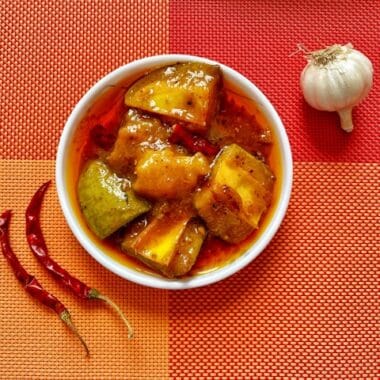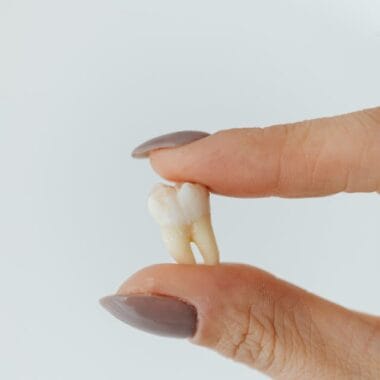When it comes to heart health, choosing the right cooking oil is crucial. Two popular oils often discussed for their cardiovascular benefits are olive oil and mustard oil. Both oils are widely used in different parts of the world and boast unique nutritional profiles. But which one is better for your heart?
In this blog, we will compare olive oil and mustard oil in terms of their health benefits, nutritional composition, and suitability for cooking, helping you make an informed choice.
Nutritional Profiles
Olive Oil
Olive oil, especially extra virgin olive oil (EVOO), is extracted from olives and is a cornerstone of the Mediterranean diet.
- Rich in Monounsaturated Fats (MUFA): About 73% of olive oil is monounsaturated fat, primarily oleic acid, which is known to reduce LDL (bad cholesterol) and increase HDL (good cholesterol).
- Antioxidants: Contains polyphenols and Vitamin E, which combat oxidative stress.
- Omega-3 and Omega-6 Fatty Acids: In small amounts, contributing to anti-inflammatory benefits.
Mustard Oil
Mustard oil is extracted from mustard seeds and is widely used in South Asia, especially India.
- Rich in Monounsaturated Fats (MUFA): About 60% MUFA, which supports heart health.
- Omega-3 Fatty Acids: Contains approximately 6%, making it a great anti-inflammatory oil.
- Omega-6 Fatty Acids: Contributes around 15%, supporting brain and heart health.
- Allyl Isothiocyanate: A compound known for its antimicrobial and anti-inflammatory properties.
Heart Health Benefits
Olive Oil and Heart Health
- Reduces Bad Cholesterol: The high MUFA content in olive oil lowers LDL cholesterol, reducing plaque buildup in arteries.
- Rich in Antioxidants: Polyphenols in olive oil protect blood vessels and reduce oxidative damage.
- Anti-Inflammatory Properties: Oleocanthal, a compound in EVOO, mimics the effects of ibuprofen, reducing inflammation—a key factor in heart disease.
- Improves Blood Pressure: Regular consumption of olive oil has been linked to lower systolic and diastolic blood pressure.
Mustard Oil and Heart Health
- Improves Cholesterol Levels: Mustard oil’s MUFA and PUFA content can lower LDL cholesterol and increase HDL cholesterol.
- High Omega-3 Content: Supports heart health by reducing inflammation, lowering triglycerides, and improving endothelial function.
- Promotes Blood Circulation: Allyl isothiocyanate helps in improving blood flow, potentially reducing the risk of clot formation.
- Rich in Antioxidants: Prevents oxidative stress, which can damage blood vessels and lead to heart disease.
Which oil has Good Cooking Suitability?
Olive Oil
- Low Smoke Point: EVOO has a lower smoke point (around 190°C or 374°F), making it unsuitable for deep frying but ideal for salad dressings, dips, or light sautéing.
- Heat Stability: Regular olive oil (not extra virgin) can be used for medium-heat cooking.
- Delicate Flavor: Adds a mild, fruity taste to dishes.
Mustard Oil
- High Smoke Point: With a smoke point of 250°C (482°F), mustard oil is excellent for frying and high-heat cooking.
- Strong Flavor: Has a pungent taste that complements spicy and savory dishes.
- Traditional Use: Widely used in Indian and Asian cuisines for pickling, frying, and tempering.
Regional Preferences and Accessibility
- Olive Oil: Popular in Mediterranean and Western diets, it is often considered a premium oil due to its price and health benefits.
- Mustard Oil: A staple in Indian, Bangladeshi, and Pakistani households, it is valued for its affordability and strong flavor.
Potential Drawbacks
Olive Oil
- Cost: Generally more expensive than mustard oil, especially EVOO.
- Cooking Limitations: Not ideal for high-heat cooking.
Mustard Oil
- Erucic Acid Content: Mustard oil contains erucic acid, which, in very high amounts, has been linked to potential heart and liver issues. However, most research points to safety when consumed in moderate quantities.
- Pungent Flavor: Not suitable for dishes requiring neutral flavors.
Which is Better for Heart Health?
Both oils have significant heart health benefits, but the choice depends on several factors:
- Nutritional Focus:
- Olive oil excels in its antioxidant content and monounsaturated fats, making it a great choice for reducing inflammation and improving cholesterol levels.
- Mustard oil’s omega-3 fatty acids give it an edge for combating inflammation and promoting cardiovascular health.
- Cooking Needs:
- Olive oil is perfect for raw use (salads, dips) or low to medium-heat cooking.
- Mustard oil is better suited for high-heat cooking and traditional spicy recipes.
- Cultural and Dietary Preferences:
- If you prefer Mediterranean-style dishes, olive oil is the ideal choice.
- For Indian or South Asian cuisine, mustard oil fits naturally.
- Affordability:
- Mustard oil is more budget-friendly than olive oil, making it a practical choice for daily use.
Conclusion: Which Should You Choose?
Both olive oil and mustard oil are healthy choices for the heart, but they serve different purposes:
- Choose Olive Oil if you prioritize antioxidants, delicate flavor, and raw or light cooking.
- Choose Mustard Oil if you need a high-heat oil, prefer strong flavors, or want the added benefits of omega-3s at a lower cost.
When it comes to mustard oil, quality and purity are essential for maximizing its health benefits. Cold-pressed mustard oil by Oylar.in stands out as an exceptional choice for those seeking natural, chemical-free, and nutrient-rich cooking oil.










